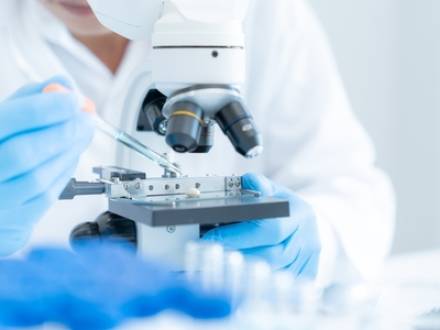The Reliability of DNA Evidence Used in Murder Convictions
 Many of us have watched so many television shows like CSI that we tend to believe DNA evidence is infallible. While DNA evidence has certainly been a game-changer in criminal prosecutions, there are certain instances when DNA evidence may not be accurate. This is particularly important when a person is on trial for homicide or another serious crime.
Many of us have watched so many television shows like CSI that we tend to believe DNA evidence is infallible. While DNA evidence has certainly been a game-changer in criminal prosecutions, there are certain instances when DNA evidence may not be accurate. This is particularly important when a person is on trial for homicide or another serious crime.
On the other side, DNA evidence has also exonerated many people who were convicted for a crime they did not commit, although there may be many more who have not been exonerated. Since 1989, 575 individuals have been exonerated through DNA evidence, some of them on death row at the time.
If you are on trial for murder, you could potentially be sentenced to life in prison. This makes all evidence against you – including DNA evidence – crucial to the outcome of your charges. When you have an experienced Rolling Meadows, IL criminal defense attorney by your side, you will receive a vigorous defense.
The History of DNA in Criminal Defense
DNA was first used in England to solve a crime in 1986 that occurred in 1983. After a young man confessed to the rape and murder of two young girls, DNA evidence did not match the man’s DNA, and he was released. More than 1,400 townspeople where the crime occurred gave DNA samples, and the police found a match to another man who was subsequently prosecuted.
Then, in 1996, in California, a man in prison on a parole violation was linked to five murders that occurred between 1978 and 1980. When he was shown the evidence, he confessed to the five murders, then confessed to an additional murder for which another man had been wrongly convicted, serving 16 years in prison. While these are the stories we generally hear about, there are definitely limitations to the use of DNA evidence along with the benefits.
Why Is DNA Sometimes Unreliable?
DNA, like any evidence, is highly susceptible to human error during processing, along with misinterpretation by juries, judges, and even attorneys. Some of the more common reasons DNA evidence may be unreliable include:
- Degraded or destroyed DNA evidence due to heat, sunlight, bacteria, or mold
- Identical twins share identical DNA
- DNA from close relatives is more similar than DNA from unrelated persons.
- While DNA evidence may indicate presence at a crime scene, it does not indicate when a person was at the scene.
- Errors in testing by those who handle DNA evidence
- Bias or misconduct by those who handle DNA evidence
DNA evidence often creates an unfair prejudice against defendants because juries believe DNA evidence is more powerful than it actually is.
What is the Prosecutor’s Fallacy?
Prosecutors often incorrectly associate a DNA match with absolute guilt. There are two issues here: the probability of a certain DNA profile being left by the defendant and the probability that the defendant is guilty. There are literally hundreds of innocent explanations regarding why a specific person’s DNA could be left at a crime scene or on a victim.
The simplest explanation is that while the defendant was with the decedent or at the scene of the crime prior to the crime being committed, he or she did not commit the crime. While the goal in a criminal trial is "beyond a reasonable doubt," prosecutors and jurors often overlook this when presented with DNA evidence they believe to be infallible.
Contact a Chicago, IL Homicide Lawyer
When you have an Oakbrook Terrace, IL homicide attorney from Hartsfield Law as your legal advocate, you have taken an important first step in ensuring you have a comprehensive defense by an attorney who fully understands the benefits and limitations of DNA evidence. Attorney Hartsfield has a very diverse background that benefits his clients.
He has represented indigent defendants in the Will County Public Defender’s Office and taught courses to pre-trial detainees at the Cook County Department of Corrections as an educator for the City Colleges of Chicago. Call 312-345-1700 to schedule a free consultation.













 312-345-1700
312-345-1700



